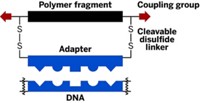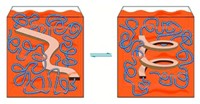Advertisement
Grab your lab coat. Let's get started
Welcome!
Welcome!
Create an account below to get 6 C&EN articles per month, receive newsletters and more - all free.
It seems this is your first time logging in online. Please enter the following information to continue.
As an ACS member you automatically get access to this site. All we need is few more details to create your reading experience.
Not you? Sign in with a different account.
Not you? Sign in with a different account.
ERROR 1
ERROR 1
ERROR 2
ERROR 2
ERROR 2
ERROR 2
ERROR 2
Password and Confirm password must match.
If you have an ACS member number, please enter it here so we can link this account to your membership. (optional)
ERROR 2
ACS values your privacy. By submitting your information, you are gaining access to C&EN and subscribing to our weekly newsletter. We use the information you provide to make your reading experience better, and we will never sell your data to third party members.
Biological Chemistry
Adaptive Synthetic Peptides
Self-assembling oligomers, which can swap nucleobases at will, store instructions for biological life in the same way as DNA or RNA
by Sarah Everts
June 15, 2009
| A version of this story appeared in
Volume 87, Issue 24
Newly reported self-assembling oligomers can store instructions for biological life by using nucleobases in the same way as DNA or RNA. These synthetic peptides also have the unusual ability to dynamically swap the nucleobases to meet their needs, without modifying the oligomeric backbone (Science, DOI: 10.1126/science.1174577). M. Reza Ghadiri of Scripps Research Institute and colleagues built the dipeptide backbone of the oligomers with alternating cysteine moieties. Each cysteine's sulfhydryl group can reversibly anchor a variety of nucleic acid bases that have been modified to undergo transthioesterification reactions. The resulting thioester peptide-nucleic acid hybrids, called tPNAs, can pair with nucleic acid bases from similar synthetic oligomers and with RNA and DNA. But what makes the work "truly outstanding," comments John D. Sutherland, a chemist at the University of Manchester, in England, is that when the tPNAs are mixed in a beaker containing a pool of nucleobases and DNA that does not possess complementary bases, the tPNA oligomer will substitute bases so that it can optimally form base pairs with the DNA. These adaptive oligomers provide food for thought for researchers studying origin-of-life chemistry or developing "biomaterials capable of dynamic sequence repair and adaptation," the Scripps researchers note.





Join the conversation
Contact the reporter
Submit a Letter to the Editor for publication
Engage with us on Twitter